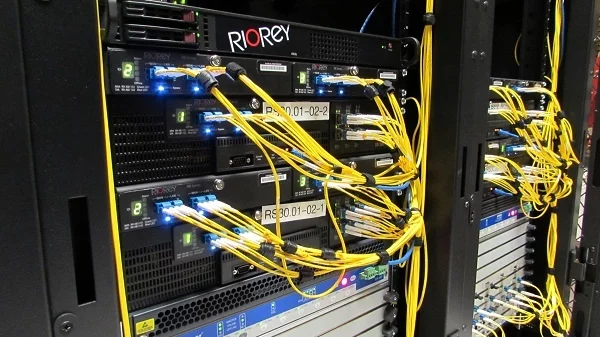How Managed DDoS Protection Shields Your Critical Web Applications?
Managed DDoS Protection, Reading the headlines? You might not be surprised to see that Akamai found DDoS attacks have doubled between 2014 and 2015. The threat of DDoS (Distributed Denial of Service) attack looms large for business of all sizes.
DDoS attacks are somewhat unsophisticated attacks that flood your network with malicious traffic, executed by botnets, hacked servers and hacked routers. Managed DDoS Protection, when hackers can simultaneously flood your public network with malicious packets, it can prevent legitimate customers from accessing your website.
And for most businesses, loss of traffic and website functionality means — you guessed it — loss of revenue.
DDoS Attacks Can Cripple Your Organization
Like the old train robberies of the Wild West, DDoS attacks have become a sort of high stakes online ransom for organizations. DDoS attacks are big business for hackers, who will use the threat of DDoS attack to literally solicit ransoms from high-profile organizations. High profile attacks in recent years have hijacked sites like Evernote and Feedly, to name a few, and they continue to find ways to affect millions of users. Managed DDoS Protection, these two recent DDoS attack examples offer some insight into the potential damage for organizations:
In late 2015, ProtonMail faced one of the largest DDoS attacks in history when its servers were slammed by an attack that sent over 50Gbps of junky packets to its servers.
The secure email provider reports that its administrators received a ransom email demanding Bitcoins prior to the attack. ProtonMail’s administrators ignored the email and 12 hours later, their services became unavailable, preventing thousands of people from accessing their email.
After unsuccessfully battling the attacks, ProtonMail succumbed and paid the ransom…but the attacks continued. In fact, ProtonMail was unable to deflect the attack until they got the Swiss government’s cyber security agency MELANI involved.
Even mainstream news websites are not immune to DDoS attacks. The British Broadcasting Company (BBC) was hit by a massive DDoS attack in early 2016. Security experts suggest the DDoS attack impacting the BBC was the biggest DDoS attack to date.
With the international news agency receiving over 600Gbps of malicious data, many BBC users were unable to access the website. There is no indication that a Bitcoin ransom was requested, therefore many security experts suggest that this DDoS attack could have been a show of power by the cyber gang that perpetrated this attack. Managed DDoS Protection, For sites like the BBC; however, where timely release of news stories is essential, this type of attack can be particularly harmful.
How to Prevent a DDoS Attack
There are a few steps you can take to prevent DDoS attacks from crippling your organization:
- Increase bandwidth to prevent a DDoS attack. Ultimately, DDoS attacks strangle your servers because they use up your bandwidth. Although far from foolproof, one of the simplest ways to stifle attempts at a DDoS attack is to increase your server bandwidth (Hint: We can help you increase server bandwidth here at ColoCrossing).
- Implement a Network Firewall Appliance to Deflect DDoS Attacks. Network administrators agree that it is a best practice to use a firewall to help mitigate DDoS attacks. Managed DDoS Protection, Vendors such as Cisco, Juniper, Palo Alto and SonicWALL provide administrators with robust features such as Intrusion Prevention and Real Time Block Lists that help deflect DDoS attacks.
- Partner with a managed IT provider that offers DDoS attack prevention. Here at ColoCrossing, our managed IT services include robust DDoS attack prevention. Managed DDoS Protection, We’ll shield your servers from a DDoS attack so that cyber criminals become discouraged (and ultimately shift their efforts elsewhere).
Our DDoS attack prevention service offers sophisticated, automated protection for your server. We help you sleep easy knowing your servers are backed up with 100% network availability and true 24/7/365 support for our nine US-based data centers. Managed DDoS Protection, Wondering how ColoCrossing can protect your organization? Contact us today to LEARN MORE.
Check special dedicated server offers by ColoCrossing!
ColoCrossing provides enterprise-grade colo and colocation solutions designed for reliability, security, and scalability. Our infrastructure supports high-performance bare metal server deployments, including bare metal dedicated server and bare metal dedicated servers built for demanding workloads. With industry-leading dedicated hosting , we deliver some of the best dedicated server hosting options backed by robust networks and expert support. Whether you need flexible dedicated server hosting , a powerful dedicated server , or fully managed dedicated servers , ColoCrossing delivers dependable performance and full control to power your business.
ColoCrossing excels in providing enterprise Colocation Services, Dedicated Servers, VPS, and a variety of Managed Solutions, operating from 10 data center locations nationwide. We cater to the diverse needs of businesses of any size, offering tailored solutions for your unique requirements. With our unwavering commitment to reliability, security, and performance, we ensure a seamless hosting experience.
For Inquiries or to receive a personalized quote, please reach out to us through our contact form here or email us at sales@colocrossing.com.


